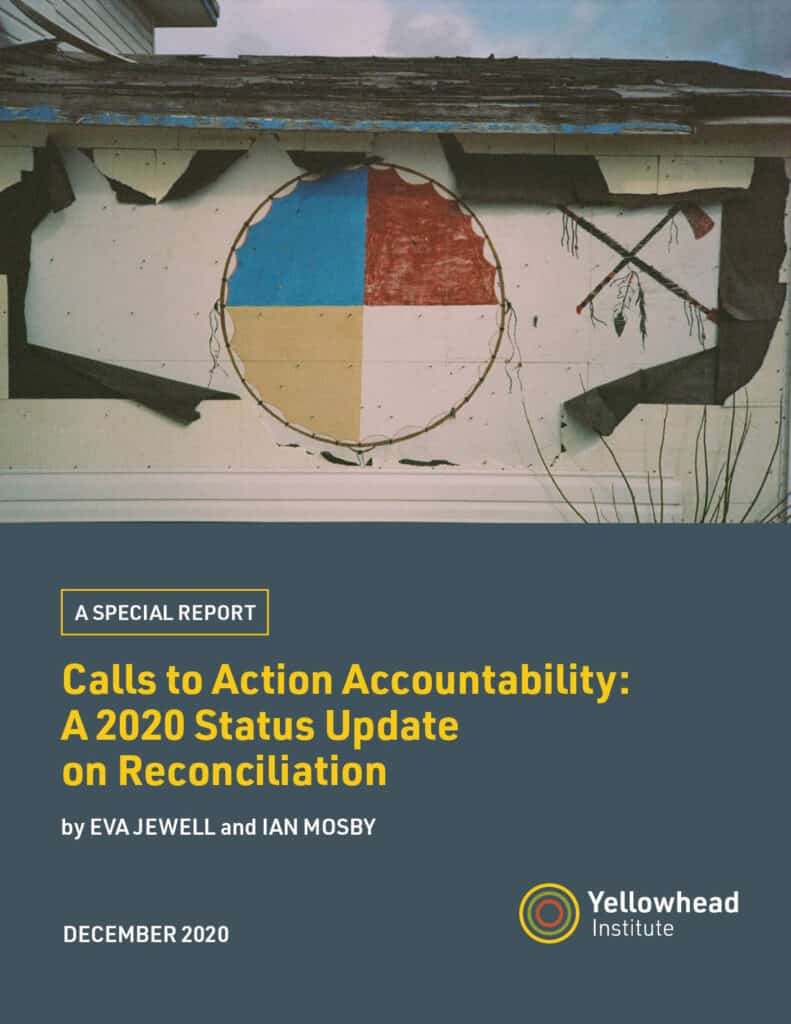- About
- Research
-
-
- Special Reports & Features
- Braiding Accountability: A Ten-Year Review of the TRC’s Healthcare Calls to Action
- Buried Burdens: The True Costs of Liquified Natural Gas (LNG) Ownership
- Pretendians and Publications: The Problem and Solutions to Redface Research
- Pinasunniq: Reflections on a Northern Indigenous Economy
- From Risk to Resilience: Indigenous Alternatives to Climate Risk Assessment in Canada
- Twenty-Five Years of Gladue: Indigenous ‘Over-Incarceration’ & the Failure of the Criminal Justice System on the Grand River
- Calls to Action Accountability: A 2023 Status Update on Reconciliation
- View all reports.
- Special Reports & Features
-
-
- Yellowhead School
-
- The Treaty Map
- LIBRARY
- Submissions
- Donate
December 15, 2020 marks a full five years since the release of the Final Report of the Truth and Reconciliation Commission of Canada.
It was a momentous day that saw residential school Survivors, their families, and representatives of the institutions responsible for overseeing the horrors of Canada’s Indian residential school system gather in Ottawa to chart a new path for the future guided by the Commission’s 94 Calls to Action. Governments committed to work with provincial, territorial, and municipal counterparts to “fully implement the Calls to Action of the Truth and Reconciliation Commission.” But five years later, that commitment has not materialized.
In 2020, a tumultuous year for many reasons, our analysis reveals that just 8 Calls to Action have been implemented, this is down from 9 in 2019. Ultimately, we find that Canada is failing residential school Survivors and their families.
KEY QUESTIONS
Why did it take the profoundly disturbing revelations of thousands of unmarked graves being found on the grounds of residential schools across the country to see Canada begin to make reconciliation a priority? And what does it mean that the Calls to Action that Canada did complete were also arguably the easiest, most of the symbolic gestures we allude to as “low hanging fruit” in this year’s report?
RELATED RESOURCES
Canada owes it to Survivors of residential schools to do better. And, we’ve had enough of the crocodile tears and empty promises of the past five years. What we need is meaningful action and we’ll continue trying to hold Canada to account for these failures.
- Eva jewell & ian mosby
AUTHOR

Eva Jewell
Deshkan Ziibiing Anishinaabekwe (Chippewas of the Thames First Nation)
AUTHOR

Ian Mosby
PHOTOGRAPHER

Seth Arcand
Kipohtakaw [Alexander] Cree Nation

